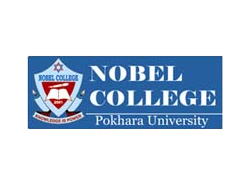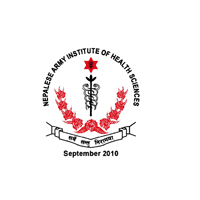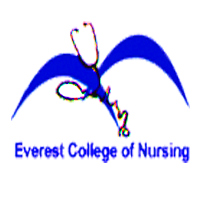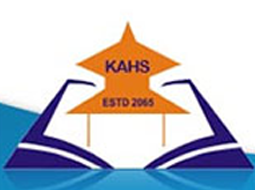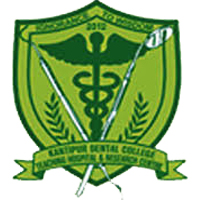Overview
Established at the dawn of the new millennium in 2000, Kathmandu Medical College (KMC) has evolved as an exemplary center of medical sciences in Nepal. Nestled in the heart of the city, it operates from two major hubs - Duwakot Basic Sciences and Sinamangal Clinical Sciences. The state-of-the-art KMC Teaching Hospital stands as a beacon of medical excellence just near the airport, within the city's ring road.
Key Personalities at KMC
The torchbearers of this esteemed institution include Professor Dr. Chanda Karki, a celebrated Obstetrician and Gynaecologist, former Head of the Obstetrics & Gynaecology Department, and past President of Nepal Society of Obstetricians and Gynaecologist (NESOG). Dr. Karki currently serves as the Principal. Meanwhile, the KMC Teaching Hospital is directed by Dr. Mukund Raj Joshi. Many of the faculty members at KMC have substantial teaching experience in medical colleges across India and internationally.
Accreditations and Affiliations
KMC prides itself on its affiliation with Kathmandu University (KU) and full recognition by both the Nepal Medical Council (NMC) and the Sri Lanka Medical Council (SLMC). The experience gained at KMCTH equips doctors for postgraduate entrance examinations held by universities worldwide. KMC holds the distinction of being included in the WHO’s World Directory of Medical Schools since June 2001. Furthermore, KMC is listed in the International Medical Education Directory (IMED) post full recognition by NMC.
As a part of its international collaborations, KMC has earned an Associate Membership of the Network of Community-Based Medical Schools headquartered in Ghent, Belgium. This facilitates KMC graduates in applying for a California Postgraduate Training Authorization Letter (PTAL) or a Physicians and Surgeons Certificate from August 2012 onwards.

Milestones and Missions
Over the years, KMC has continually strived to deliver medical education that is easily accessible, affordable, and of high quality. It aims to bridge the gap created by the prohibitive cost of medical education abroad. The management of KMC, since 1st May 2000, includes a dynamic group of leading doctors, businessmen, and charity organizations. The increasing number of patients seeking care at KMC Teaching Hospital stands as a testament to its success.
Facilities at Kathmandu Medical College
Infrastructure
Kathmandu Medical College (KMC) offers a comprehensive range of facilities to support student learning and faculty teaching. This includes:
- 7 faculty rooms
- PG seminar room
- Practical room
- Demonstration room
Library
KMC has two spacious libraries — one for Basic Sciences and the other for Clinical Sciences. These libraries are equipped with numerous books and general, scientific, and medical journals. They also have self-learning areas with videos and CD-ROMs for computer-based learning. Furthermore, each department has a smaller departmental library to cater to its specific needs.
Internet/E-mail connections and photocopying facilities are also available for students and staff, making information retrieval easy.
Library working hours: 9:00 AM – 10:00 PM.
Hostel
KMC provides student accommodation at two locations:
-
Duwakot, Bhaktapur: KMC's building, the hostel complex, accommodates 421 students. A canteen within the premises provides both vegetarian and non-vegetarian wholesome food.
-
Sinamangal: Here, KMC maintains two girls' hostels and one boys' hostel in rented buildings. These hostels accommodate 128 students and offer mess facilities. A common room and necessities are also provided. A member of the administrative staff has been assigned to cater to the student's needs. The day-to-day management of the girls' hostel is the responsibility of an assigned warden.
Canteen
A spacious, hygienic, and well-maintained canteen at KMC caters to a wide range of tastes for students and faculty. The canteen is operative during college hours. Special care is taken to maintain the status and hygiene of the accommodation as well as the surrounding habitat.
Transportation
Currently, due to situational constraints, the transportation facility is available only to the hospital staff.
The diverse facilities at KMC aim to create a conducive learning environment, supporting students in their academic journey and faculty in their teaching endeavors.
Admission Guidelines: Eligibility Criteria at Kathmandu Medical College
1. Bachelor in Nursing Science (BNS)
Eligibility
- Completed 3 years of certificate level of nursing from a recognized institute and should have secured an aggregate of 50% marks.
- Minimum of one year of clinical or teaching experience after successful completion of the certificate nursing course.
- Must be registered with the Nepal Nursing Council.
Selection Criteria
- Candidates' selection will be based on the KU entrance examination followed by counseling.
- Candidates will be selected on the basis of merit.
2. Bachelor of Dental Surgery (BDS)
Eligibility
- Students should have passed 10+2 Science (Biology Group) or equivalent securing at least 50% separately in Physics, Chemistry, and Biology with 50% aggregate in total marks OR
- Secured at least C+ grade separately in Physics, Chemistry, and Biology with at least a C grade in remaining individual subjects along with a GPA of 2.4 OR
- Secured the Percentage equivalent to the above eligibility in regards to the certificate level programs (A-Level) with a different grading system OR
- Applicants who have passed the Health Science Proficiency Certificate Level /Diploma (General Medicine, Medical Lab Technology, Ophthalmic Science, Dental Science, Pharmacy, Ayurveda, Radiography, Physiotherapy) with Certificate of Equivalence to Grade 12 Science program from National Examination Board AND
- Secured at least 50% separately in Physics, Chemistry, and Biology with 50% aggregate in total marks both in Diploma and the Examination for Equivalence AND
- Registered in Nepal Health Professional Council or Nepal Pharmacy Council or Nepal Ayurveda Council as per related educational program.
Selection Criteria
- Students may contact KMC for forms, prospectus, or other details. Nepali and foreign students will have to take the Undergraduate Common Entrance Examination and admissions are strictly according to merit.
3. Bachelor of Medicine, Bachelor of Surgery (MBBS)
Eligibility
- Same as the BDS course.
Selection Criteria
- Same as the BDS course.
4. BSc Nursing
Eligibility
- Completed 10+2 years of education or equivalent qualification with a minimum 2.4 GPA in aggregate and minimum C+ in Physics, Chemistry, and Biology separately and minimum C in other subjects OR
- Must have passed Intermediate of Science or 10+2 or equivalent with Physics, Chemistry, and Biology and should have secured an aggregate of 50% or more marks in the subjects mentioned above put together and an aggregate of 50% overall (Non-grading system).
Selection Criteria
- Compulsory pass in Kathmandu University Entrance Examination.
- Academic achievement in the Intermediate of Science or 10+2 or Equivalent examination.
- Personal interview.
- Candidates will be selected on the basis of merit.
5. M.Sc. Nursing
Eligibility
- Completed 4 years B. Sc. Nursing or minimum of 3 years Bachelor in Nursing Sciences (BNS) from a recognized University and secured an aggregate of 60% marks.
- Minimum of one year of clinical or teaching experience after successful completion of the Bachelor's degree.
- Be registered with the Nepal Nursing Council.
Selection Criteria
- Same as the BNS course.
Academic Programs at KMC
KMC, under the umbrella of Kathmandu University, takes immense pride in its vast range of programs for students seeking to pursue their careers in the medical field. These courses are designed to ensure that students acquire both theoretical knowledge and practical skills needed for the medical profession.
1. Master in Dental Surgery (MDS): This is a postgraduate program that provides advanced training in various specialties of dental sciences. It equips students with the skills and knowledge necessary to diagnose and manage complex oral health issues.
2. Bachelor of Physiotherapy (BPT): A BPT degree equips students with skills and knowledge in manual therapy, therapeutic exercise, and the application of electro-physical modalities, required to become competent physiotherapists.
3. Bachelor in Nursing Science (BNS): BNS is a professional course that provides students with a broad understanding of nursing practices and prepares them for roles as clinical nurses in healthcare settings.
4. Bachelor of Dental Surgery (BDS): BDS is an undergraduate degree program in the field of dentistry. The course curriculum provides students with valuable knowledge about dental problems, dental surgery, and methods to prevent and treat oral diseases.
5. MBBS (Bachelor of Medicine, Bachelor of Surgery): This is a professional degree in medical science. It provides students with in-depth knowledge about human anatomy, medicinal drugs, pharmaceutical chemistry, and effective treatment of patients.
6. BSc Nursing: This undergraduate course provides students with a broad range of knowledge about nursing, healthcare, and medical procedures. It prepares students for roles as registered nurses in hospitals and other healthcare settings.
7. MD Anaesthesiology: This postgraduate program equips students with advanced knowledge and skills in anesthesiology. They learn about various types of anesthesia and how to apply them in surgical settings.
8. MD Dermatology: A postgraduate degree program that equips students with in-depth knowledge about the structure, functions, diseases, and treatment of the skin.
9. MD Internal Medicine: This program focuses on the prevention, diagnosis, and treatment of diseases in adults. It provides an in-depth understanding of the human body and its systems.
10. MD Obstetrics and Gynaecology: This postgraduate course prepares students for a career in managing pregnancy, labor, and puerperium (the period following childbirth), as well as female reproductive health.
11. MS Ophthalmology: This program provides comprehensive training in the diagnosis and treatment of eye disorders, diseases, and injuries.
12. MD Paediatrics: This postgraduate course prepares students for a career in diagnosing and treating childhood illnesses, from minor health problems to serious diseases.
13. MD in Psychiatry: This course provides in-depth knowledge about the diagnosis, treatment, and prevention of mental, emotional, and behavioral disorders.
14. MD Radio Diagnosis: This program trains students in using imaging technologies (such as X-ray radiography, ultrasound, computed tomography, and magnetic resonance imaging) to diagnose certain diseases and conditions.
15. MD Pharmacology: This program focuses on the study of drug composition, properties, reactions, and uses in treating diseases.
16. MD Physiology: A course that provides detailed knowledge about the functioning of various body systems.
17. MD Microbiology: This program focuses on the study of microorganisms such as bacteria, viruses, archaea, fungi, and protozoa.
18. MD Pathology: This course deals with the study of diseases, their causes, development, and consequences.
19. MS General Surgery: This postgraduate surgical specialty course trains students to perform surgeries to treat several diseases and injuries.
20. MS in Orthopedics (MS Orthopedics): This course provides training in the diagnosis, treatment, prevention, and rehabilitation of diseases, injuries, and disorders of the musculoskeletal system.
21. MS Otorhinolaryngology: This program focuses on the surgical and medical treatment of the ears, nose, and throat, as well as related areas of the head and neck.
22. MD Community Medicine: This program imparts knowledge and skills related to the practice of medicine among certain communities or populations.
23. MD General Practice (MDGP): This program prepares students for a career as a general practitioner, who can provide holistic and personalized care to patients of all ages.
24. MCh GI Surgery: This is a super-specialty course that deals with surgery related to the gastrointestinal tract.
25. MCh Neurosurgery: This super-specialty course focuses on the prevention, diagnosis, treatment, and rehabilitation of disorders that affect the brain, spine, and nerves.
26. MCh Urology: This course focuses on the surgical and medical diseases of the male and female urinary tract system and the male reproductive organs.
27. DM Neonatology: This super-specialty course provides specialized knowledge about the medical care of newborn infants, especially ill or premature newborns.
28. DM Critical Care Medicine: This program prepares specialists who provide life support or organ support systems to patients who are critically ill or injured.
Contact Kathmandu Medical College's administrative office for detailed information on the course, admissions, location, fees, scholarships, facilities, counseling or eligibility.
Contact Address:
Kathmandu Medical College Teaching Hospital Clinical Science Complex, Sinamangal, Kathmandu, Nepal
Phone: +977-1-4469064, +977-1-4476152
Website: www.kmc.edu.np
Email: [email protected]



